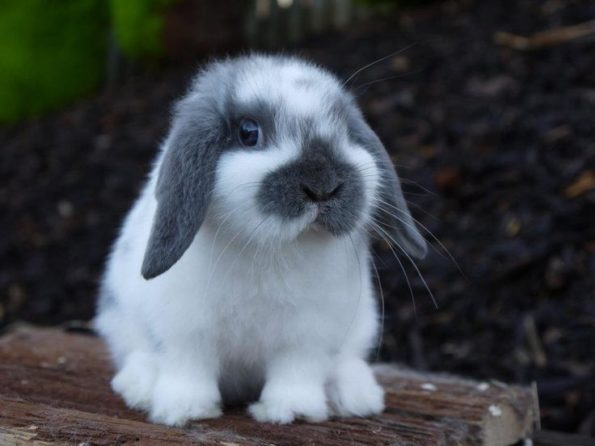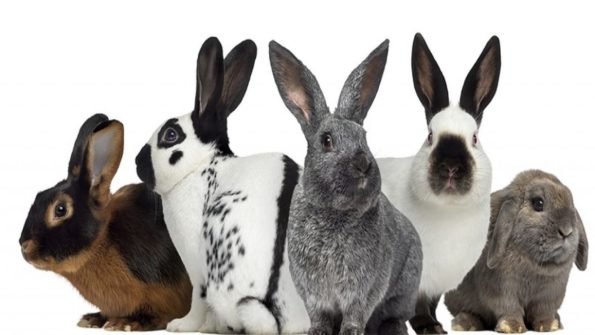
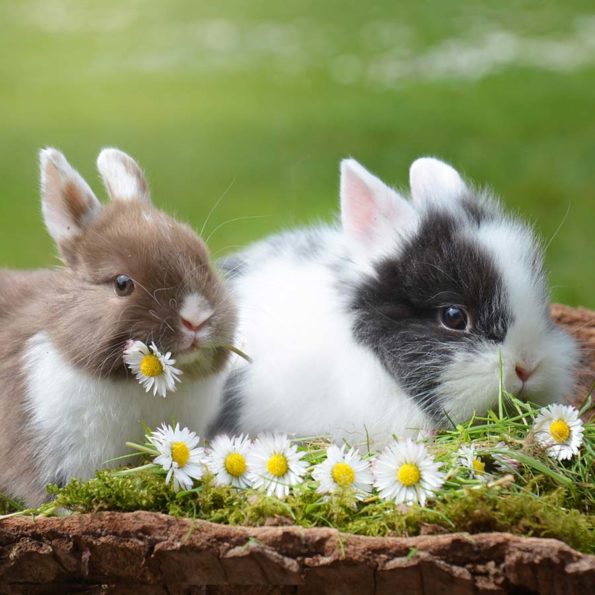 Rabbits make great pets. General care for rabbits includes appropriate housing, exercise, socialisation and a specific diet. Some breeds of rabbits, particularly the longer haired rabbits, may require daily grooming. It is important that you understand all the requirements for caring for a rabbit before adopting one into your family.
Rabbits make great pets. General care for rabbits includes appropriate housing, exercise, socialisation and a specific diet. Some breeds of rabbits, particularly the longer haired rabbits, may require daily grooming. It is important that you understand all the requirements for caring for a rabbit before adopting one into your family.
Rabbits generally live for 5 to 8 years depending on their breed, but they can live for as long as 12 years.
Rabbits are herbivores and only eat plant material. Their natural diet consists generally of plants or bushes, grasses, weeds, sometimes the bark from bushes and trees. In a home environment, they tend to eat small amounts frequently. Pet rabbits require a high fibre diet to help maintain their body and teeth health. Rabbits’ teeth are constantly growing and need to be continually worn down by eating. Their diet should consist of unlimited access to grass hay and/or grass to assist with teeth wearing. If you are keeping your rabbit inside most of the time or they do not have access to grass for several hours a day you can use grass hay as an alternative fibre source. Lawn clippings must not be fed as they ferment rapidly and cause digestive upset in your rabbit.
Fresh green vegetables such as cabbage, lettuce, broccoli and celery can be included in their daily diet, but must not be their only source of food as the fibre content is too low.
Fresh, cool water must be provided at all times.
Rabbits require a hutch to live in that is safe from predators, such as dogs and cats. Rabbits should be provided with an area that protects them from the weather and has enough space for exercise. A suitable hutch design is water proof and includes a dark, dry area for the rabbits to rest which has a bedding of soft hay. The other section of the hutch should be light and large enough to allow for a separate exercise and toileting area. Rabbits can also be toilet trained to use a litter tray.
The hutch must be well ventilated. It is best to have a hutch made out of wood as metal hutches heat up more quickly.
Rabbits should not be placed in pens or hutches with wire floors, it is bad for their feet. It is ok for part of the pen to be made of wire as long as your rabbit has an area where they can stand on solid ground. Many two story hutches provide this option.
The hutch needs to be at least a minimum of 4 times the length of your fully grown rabbit, and twice as wide their body. If you buy a juvenile bunny, remember they will grow.
It is important to clean the hutch at least every second day by removing soiled bedding and make sure rabbits have a dry area to sleep. Rabbits that do not have clean bedding can suffer from respiratory infections, skin ailments and pest infestation such as fleas and mites.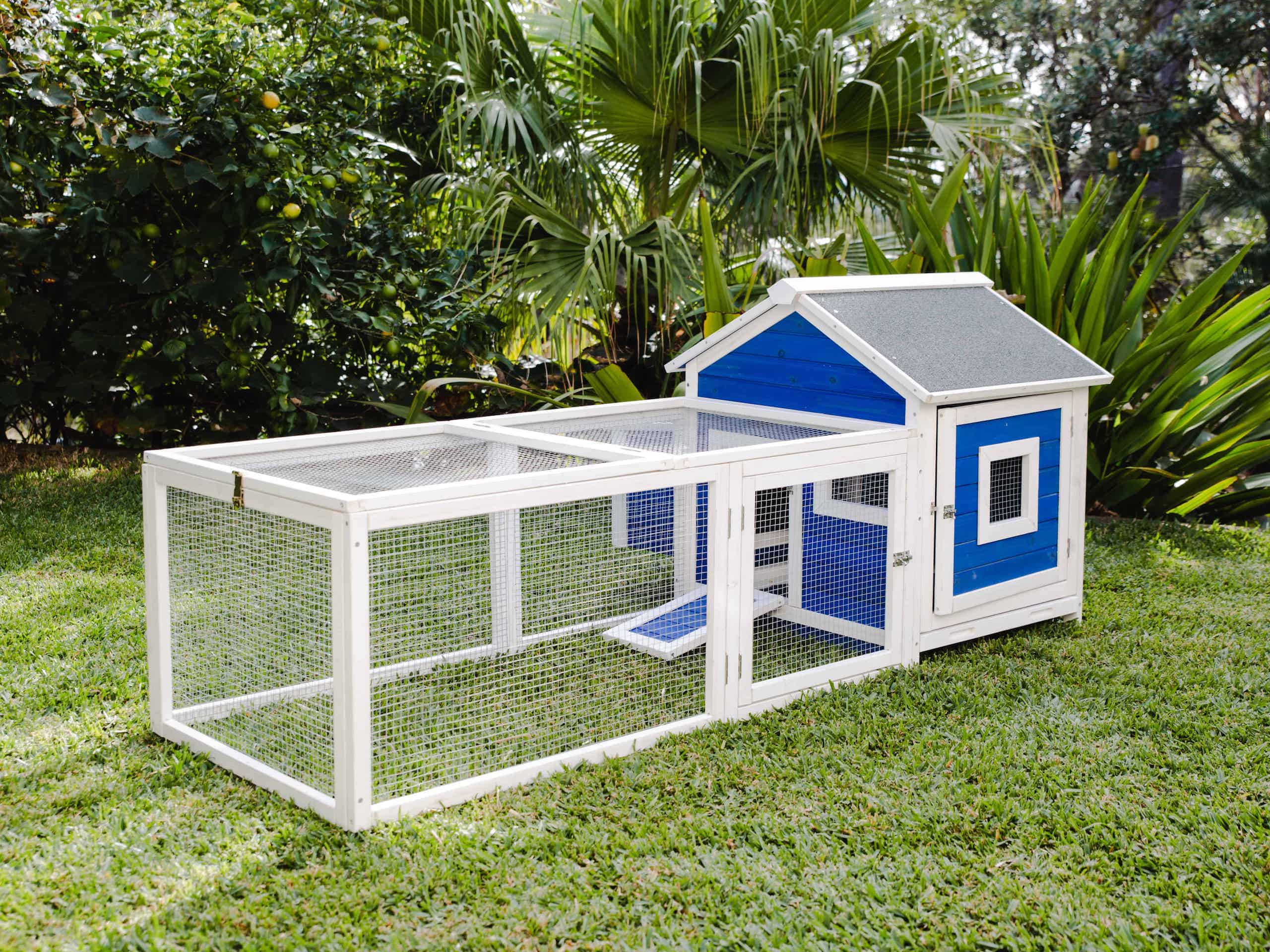
Rabbits are often exercised indoors. You may wish to set up a room where your rabbit can roam free and interact with the family. Remember that rabbits like to chew on things, so if leaving your rabbit free to roam unsupervised, you may come home to some chewed skirting boards, cables or chair legs.
If you want to provide your rabbit with a larger living area than its hutch when you are not home, consider a pet pen or a children’s play pen. You could attach it to the hutch to give your rabbit a larger space to exercise and play.
Your pet rabbit should have the opportunity to dig and forage when they are outside. They should be confined to an enclosed area (which includes a roof to seal the enclosure) and not allowed to roam free.
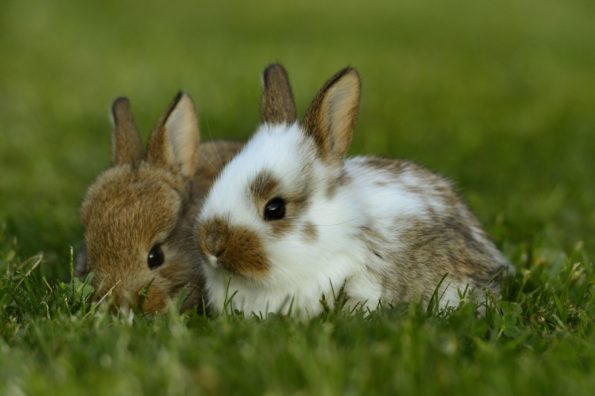 Ensure that if you leave your rabbit outside for long periods of time they have access to their hutch or a weather proof area with bedding so they can rest.
Ensure that if you leave your rabbit outside for long periods of time they have access to their hutch or a weather proof area with bedding so they can rest.
If you have 2 or more rabbits it is important to avoid unwanted pregnancies. Separate males and females into different pens or have your veterinarian desex them. Males will be less likely to fight each other if introduced at a young age. Females and males can be prone to fighting amongst each other so make sure you help new rabbits get used to each other in a supervised environment or through a mesh fence before they co-habit.
Rabbits are playful and inquisitive and require the stimulation of other rabbits or humans and their environment. They are active animals that need to exercise and play regularly. Ensuring your rabbit is adequately stimulated is an important aspect of caring for your rabbit. This can be achieved through environmental enrichment.
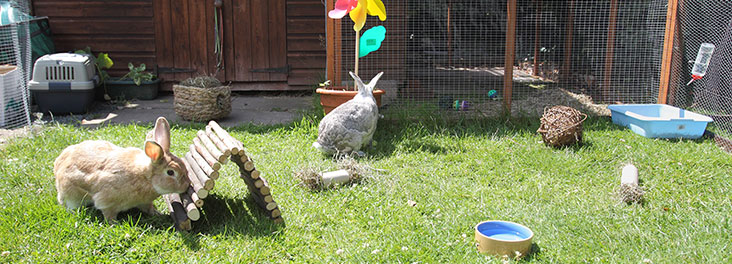


Rabbits are most active during the early morning, late afternoon and evening. This is the best time for you to interact with your rabbit.
Rabbits will display a range of behaviours that are a natural instinct. This may include:
- chewing on solid objects (This keeps their teeth in good health)
- nesting (create nests using their own fur, hay and other materials they find lying around)
- thumping of their back feet
Changes in their normal, everyday behaviours can be an indication of a health issue. Contact your vet if you notice a rapid change in your rabbit’s behaviour such as:
- hiding
- aggression when you try to touch or pick them up
- excessive cage or object chewing
- over grooming
- changes in feeding or toileting
- playing with water bottles
- over drinking
- Repeated circling of enclosure.
Rabbits can also be vulnerable to a number of health problems, in particular diseases such as Myxomatosis and Calicivirus. These diseases are generally fatal for pet rabbits. They have been introduced into Australia to control the wild rabbit population. Unfortunately pet rabbits are just as susceptible to them. Try to reduce the risk of mosquito bites to your rabbits as mosquitos can carry Myxomatosis from the wild rabbit population to your pet. For outdoor exercise, you can cover the hutch with fly-screen to prevent mosquitos from entering.
There is a vaccine for Calicivirus. You can have your rabbit vaccinated against this disease every 6 months by your vet.
Rabbits make great pets for children. However, they are fragile and young children should always be supervised when handling them. They can accidentally cause injury when picking up the rabbit, by squeezing too tightly, or dropping them.
Rabbits must be handled appropriately so they do not scratch or bite and so they can develop a positive relationship with humans. Handle rabbits regularly, especially when they are young. Sit while you are handling a rabbit so the rabbit can’t fall. Rabbits should be picked up with two hands. Hold them close to the chest or on your lap so they can rest their feet and feel secure.
If you have any concerns regarding your pet, or have questions about adding a rabbit to the family, contact us at the Gisborne Veterinary Clinic on (03) 54282805.


